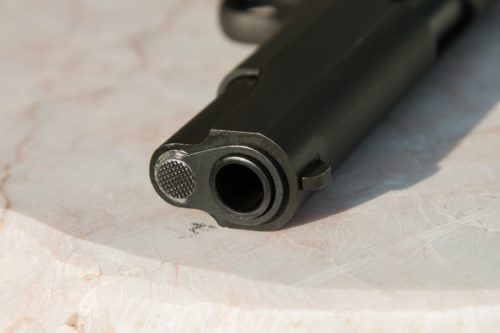
Murder and manslaughter are both considered types of homicide under New Jersey’s criminal statutes. Though you may assume that these terms can be used interchangeably, they harbor key differences. Namely, they carry different degrees of criminal consequences. Read on to discover the difference between murder and manslaughter and how one of the experienced New Jersey & Pennsylvania criminal defense lawyers at The Vigilante Law Firm, P.C. can help minimize the charges placed against you.
By New Jersey statute, what is the difference between murder and manslaughter?
In its simplest terms, murder is defined as a defendant’s purposeful and knowing act of causing death or causing serious bodily injury that results in death. With this, such “serious bodily injury” may create a substantial risk of death; a serious, permanent disfigurement; a long-term loss of impairment of a bodily function; etc. What may also constitute murder is if a defendant causes death while committing or attempting to commit another serious crime, such as burglary, robbery, sexual assault, etc.
On the flip side, manslaughter is defined as a defendant’s reckless act of causing death or causing serious bodily injury that results in death. You must understand that a “reckless” act holds a different meaning than a “purposeful” and “knowing” act. This is because acting recklessly may be seen as putting a victim in danger without any reasonable or justifiable cause. It may also be seen as acting “in the heat of passion resulting from a reasonable provocation.”
What are the possible criminal consequences for murder and manslaughter charges?
Murder is considered a crime of the first degree in the state of New Jersey. Manslaughter is considered a crime of the second degree, though it may be upgraded to the first degree if there are aggravated circumstances. For example, such an aggravated circumstance is if a defendant commits manslaughter while fleeing or attempting to flee from a law enforcement officer.
But even still, murder is taken more seriously and therefore comes with more advanced charges than first-degree aggravated manslaughter. Without further ado, the possible criminal consequences for each charge read as follows:
- First-degree murder:
- A fine of up to $200,000.
- A prison sentence of anywhere between 30 years to life.
- Second-degree manslaughter:
- A fine of up to $150,000.
- A prison sentence of anywhere between 10 to 20 years.
- First-degree aggravated manslaughter:
- A fine of up to $200,000.
- A prison sentence of anywhere between 10 to 30 years.
It is also worth mentioning that, with a first-degree murder charge, there is no possibility for parole until at least 30 years worth of a prison sentence have been served. This follows New Jersey’s No Early Release Act.
Whenever you are ready, one of the experienced New Jersey & Pennsylvania criminal defense lawyers is here to provide legal assistance. So please schedule your initial consultation with us at The Vigilante Law Firm, P.C. today.


